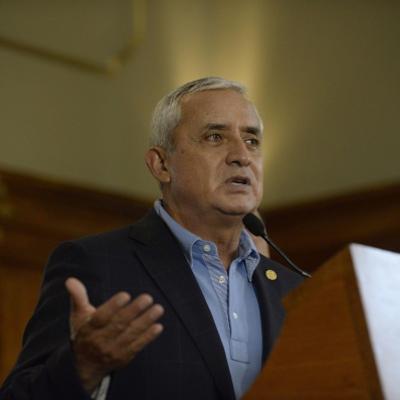Otto Pérez Molina at a Glance
- Categories: Politicians, Politicians > Presidents
- Net Worth: $400 Thousand
- Birthdate: Dec 1, 1950 (73 years old)
- Birthplace: Guatemala City
- Gender: Male
- Profession: Politician
- Nationality: Guatemala
Otto Pérez Molina: Net Worth, Political Career, and Controversies
Introduction: Who is Otto Pérez Molina?
Otto Fernando Pérez Molina is a prominent figure in Guatemalan politics, known for his military background and controversial presidency. Born on December 1, 1950, he served as the President of Guatemala from 2012 to 2015. His career spans decades, including a significant tenure in the military and a later transition into the political arena. This article delves into his life, career, net worth, and the controversies that have defined his public image.
Early Life and Military Career
Before entering the world of politics, Otto Pérez Molina had a distinguished career in the Guatemalan military. He was involved in the special forces, known as the Kaibiles, which were known for their rigorous training and combat skills. During the Guatemalan Civil War, he served in various roles, including Director of Military Intelligence and inspector-general of the army. His time in the military shaped his perspectives and provided him with experience that would later influence his political decisions. This experience gave him a unique understanding of national security issues.
- Born: December 1, 1950, in Guatemala City
- Served in the special forces (Kaibiles)
- Director of Military Intelligence
- Inspector-General of the Army
Political Career: From Military to the Presidency
Pérez Molina’s transition to politics marked a significant shift in his career. He ran for president in 2007 as the Patriotic Party candidate but lost the election. However, he persisted and was successful in the 2011 presidential election, ultimately becoming President of Guatemala on January 14, 2012. His political platform often focused on issues of security and law enforcement, drawing from his military background. The Patriotic Party aligned with other parties in the Grand National Alliance in the 2003 general election, signaling a growing political presence. This political move helped to establish a power base from which he could eventually launch a successful presidential bid.
Presidency and Controversies
During his presidency, Otto Pérez Molina faced a series of controversies that significantly impacted his public image and political career. One of the most notable was his call for the legalization of drugs, a stance that sparked widespread debate and discussion. Additionally, he faced allegations of corruption and involvement in illicit activities. These issues led to protests and investigations that ultimately resulted in his resignation in 2015. He was the first former military official to be elected president since the return to democratic elections in 1986. Furthermore, his family members and political allies were also targeted in various attacks.
- Calls for drug legalization
- Allegations of corruption
- Resigned in 2015 amidst scandals
- Controversial attacks on family
Net Worth and Financial Standing
According to available information, Otto Pérez Molina’s net worth is estimated to be around $400,000. This figure reflects his assets, investments, and income derived from his career in both the military and politics. As with any public figure, the accuracy of net worth estimates can vary due to the complexities of personal finances and the availability of financial disclosures. However, it provides a general indication of his financial position.
Legacy
Otto Pérez Molina’s legacy is complex and marked by both his accomplishments and controversies. His time in office was defined by his efforts to address pressing issues, but it was also overshadowed by corruption allegations and political scandals. The impact of his policies and the controversies surrounding him continue to be debated and analyzed. His story serves as a case study of the challenges faced by leaders in transitioning democracies.

